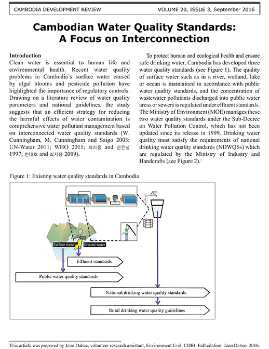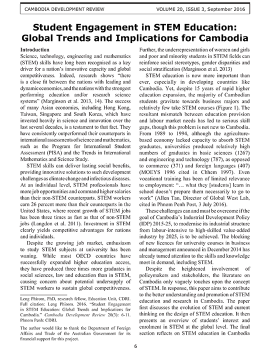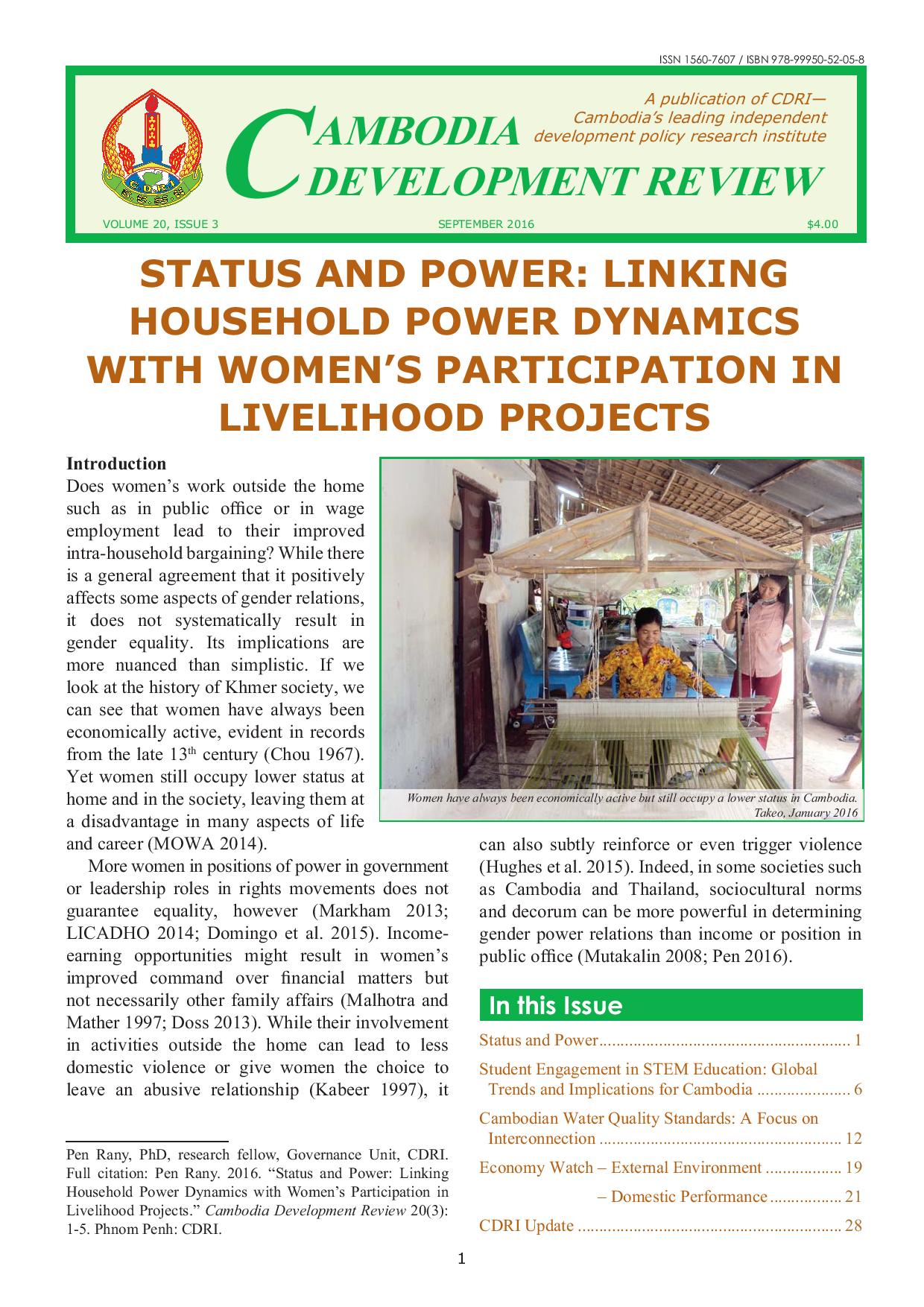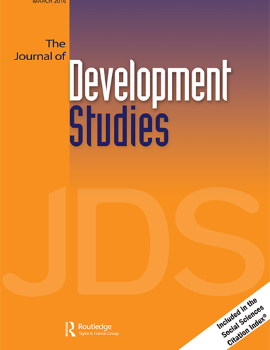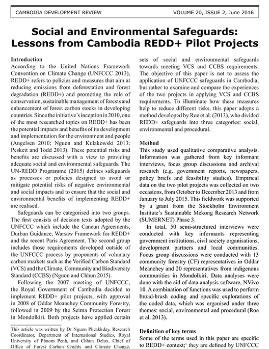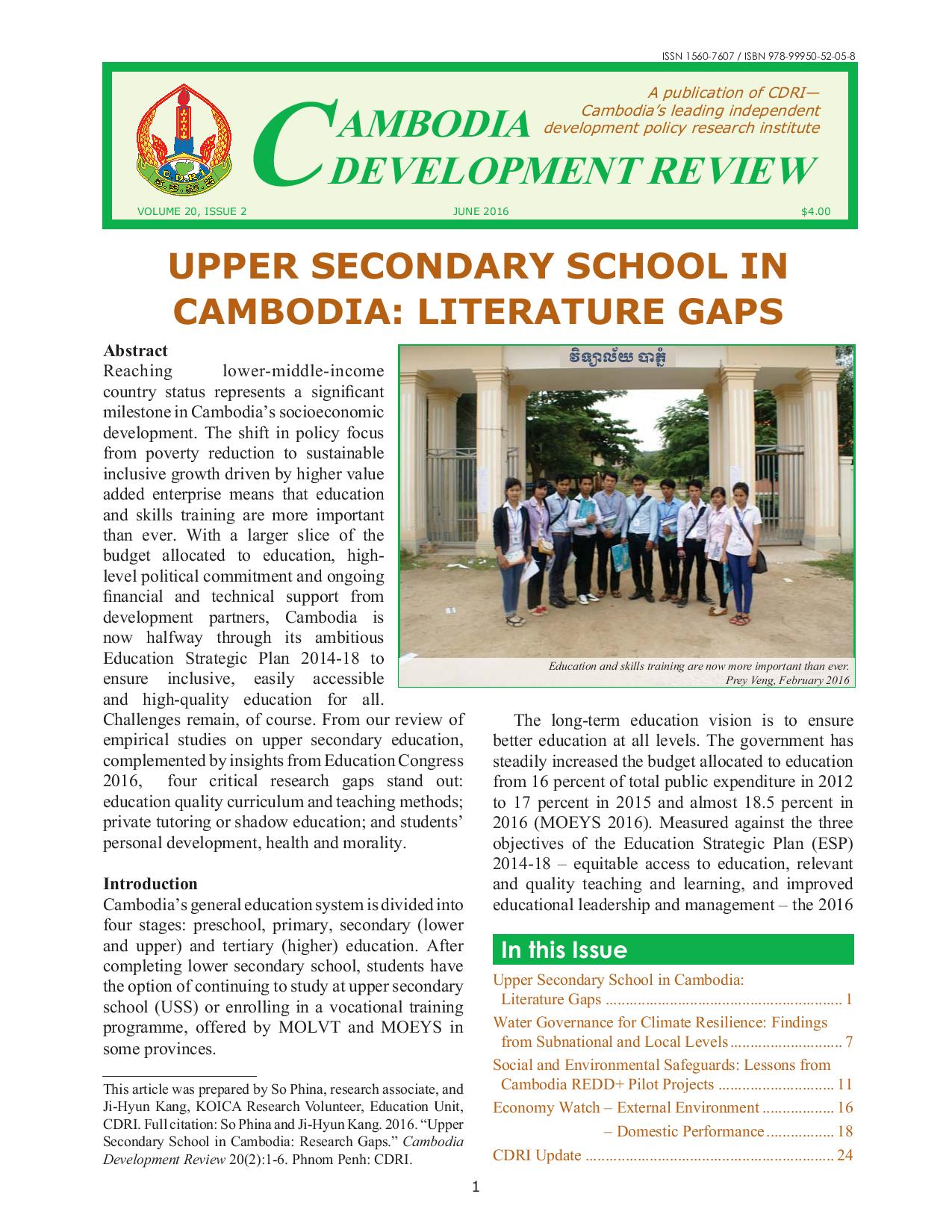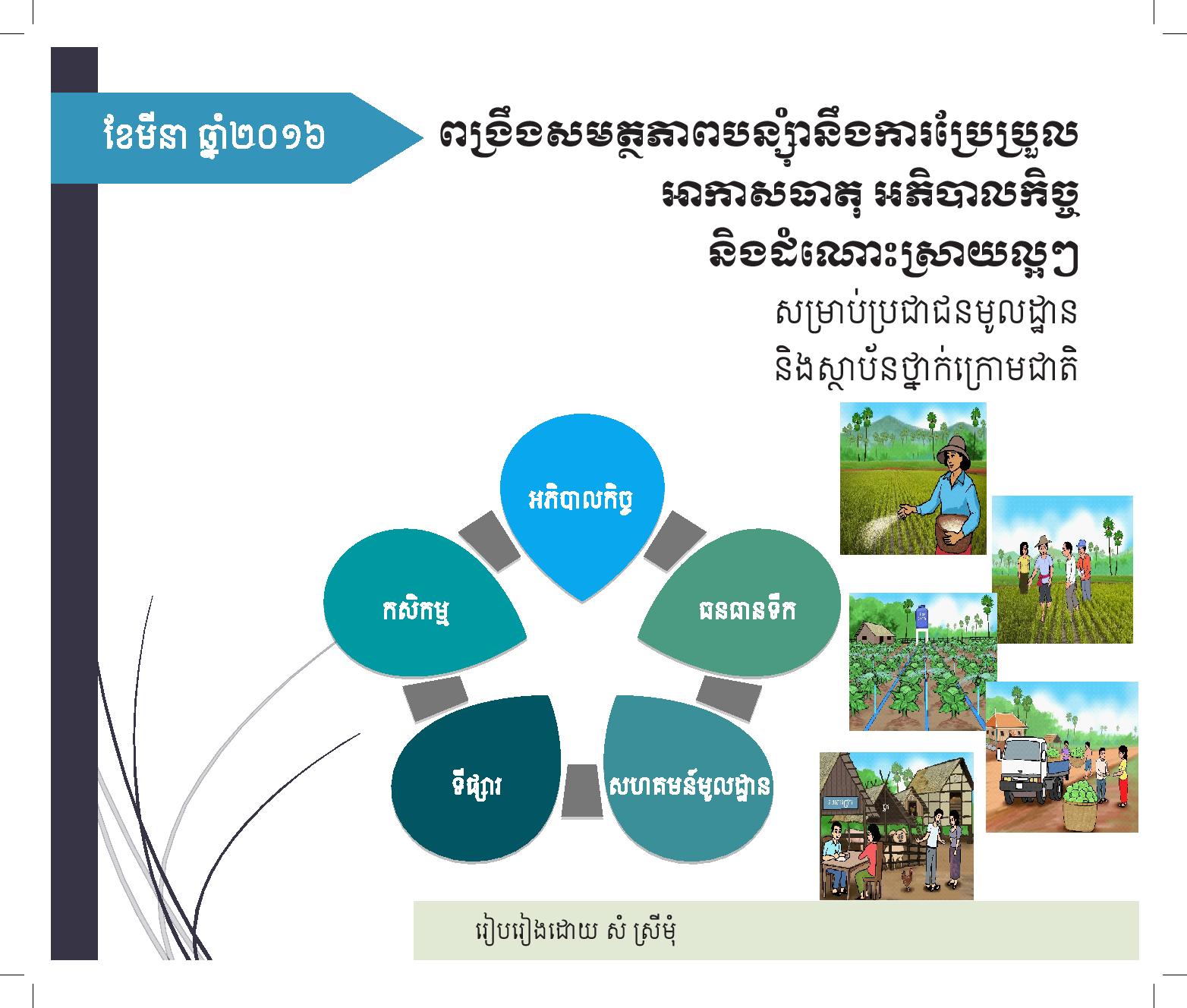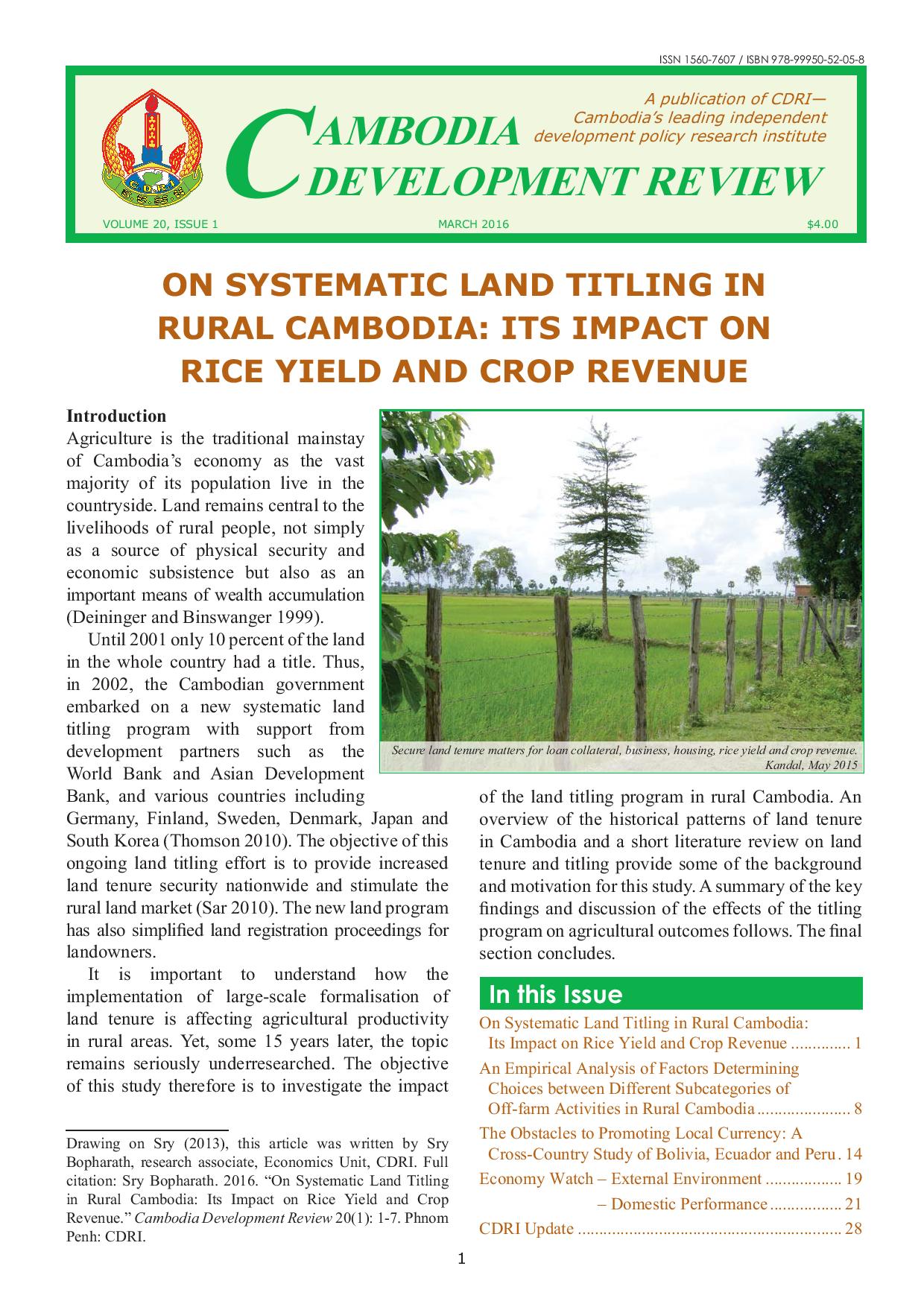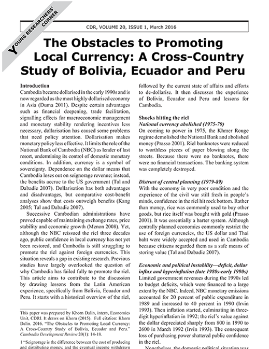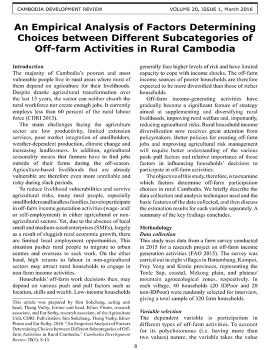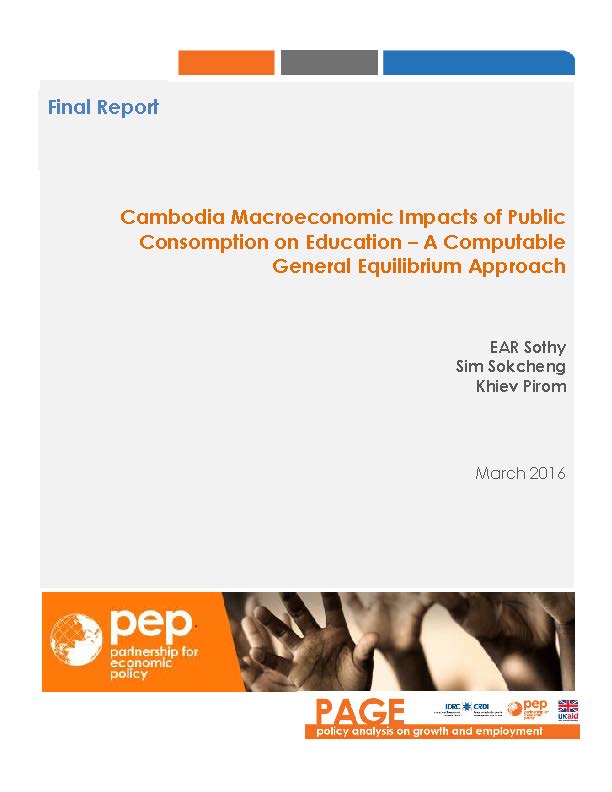ROTH Vathana, Luca Tiberti
2016
Economic Effects of Migration on the Left-Behind in Cambodia
Using propensity score matching, this study examines the effects of migration on various indicators of household wellbeing in Cambodia. The results indicate that migration would reduce poverty headcount rate by 3–7 percentage points and decrease the depth of poverty. Migration is also found to reduce by 5–10 percent the hours worked by members left-behind. The impact of migration on labour participation may be, however, vulnerable to unobservable factors. Nevertheless, the study suggests that important heterogeneous effects which differ from the […]
SAM Sreymom
2016
Enhancing Adaptive Capacity to Climate Change
This handbook is designed for small farmers and local smallholders. Using understandable terms and clear, attractive pictures, it sets out some of the best farming practices for enhancing adaptive capacity and resilience to climate change. It explains:How climate change and human activities affect water resources and local livelihoods;What can be done to strengthen water governance for more effective water use and management in response to climate change;Easily applicable field and water management practices for adaptation;How to market small farm products;What […]
EAR Sothy, SIM Sokcheng, KHIEV Pirom
2016
Cambodia Macroeconomic Impacts of Public Consumption on Education — A Computable General Equilibrium Approach
Lack of human capital is seen as one of the most significant constraints for Cambodia to be more competitive and to reach upper-middle-income country status. A recent discussion among researchers, policymakers, the private sector and development partners reached a broad consensus that a skills gap is emerging in Cambodia. In spite of concerted efforts, policymakers and bureaucrats still face challenges in designing and executing education policies that could build more human capital, especially highly skilled and educated labour. Information on […]

